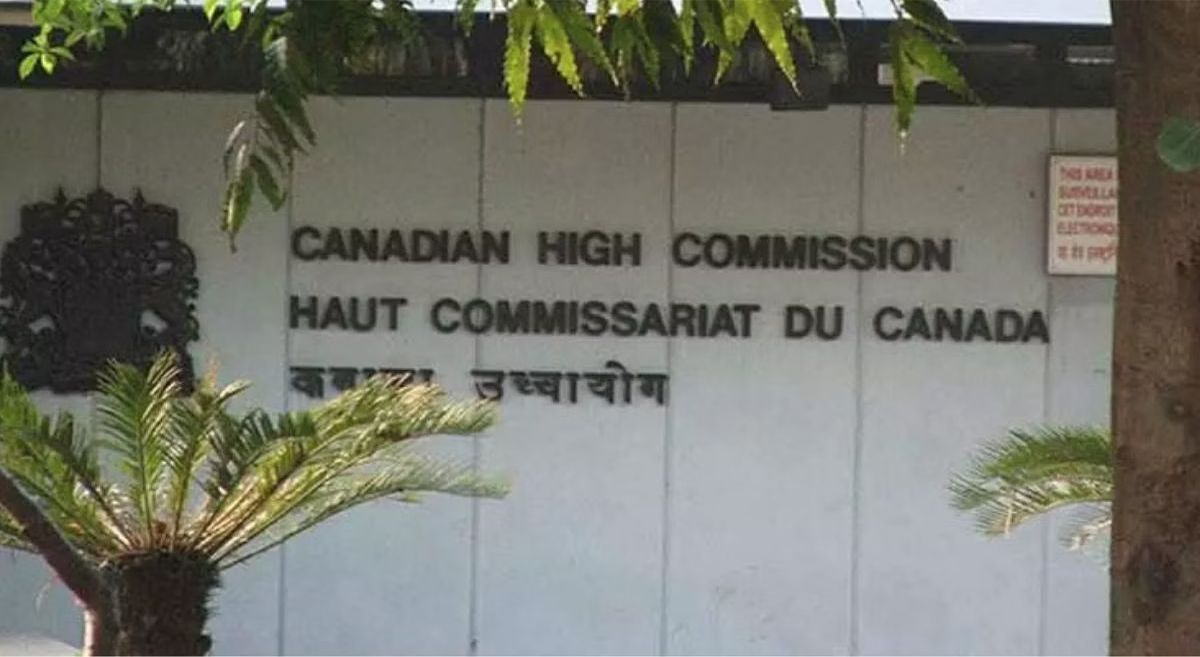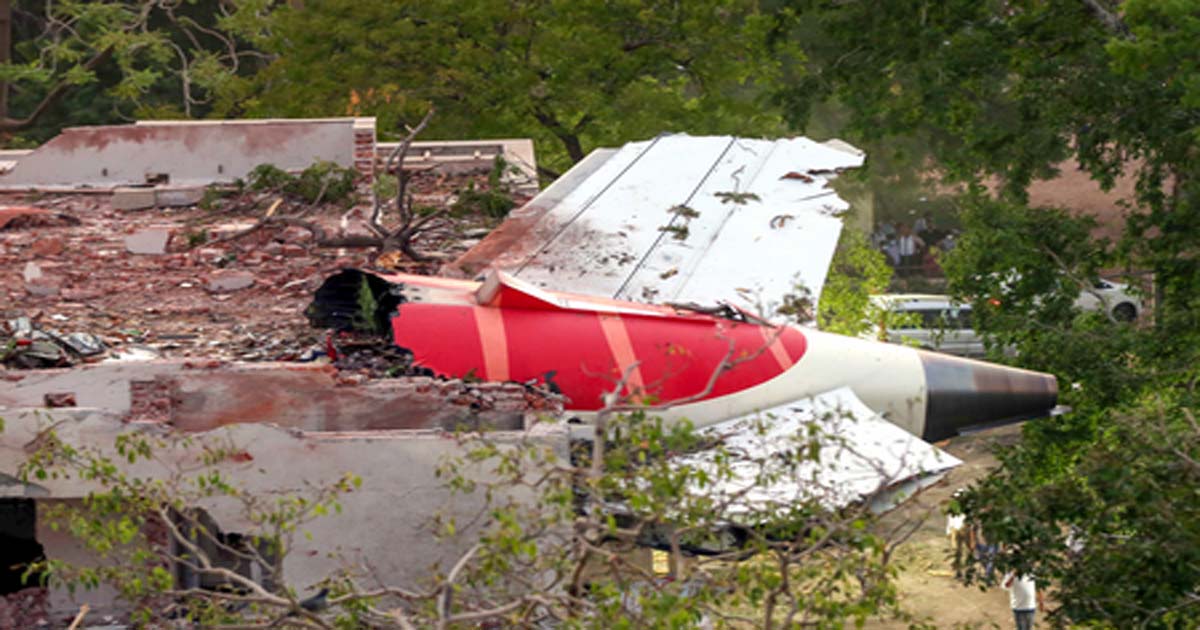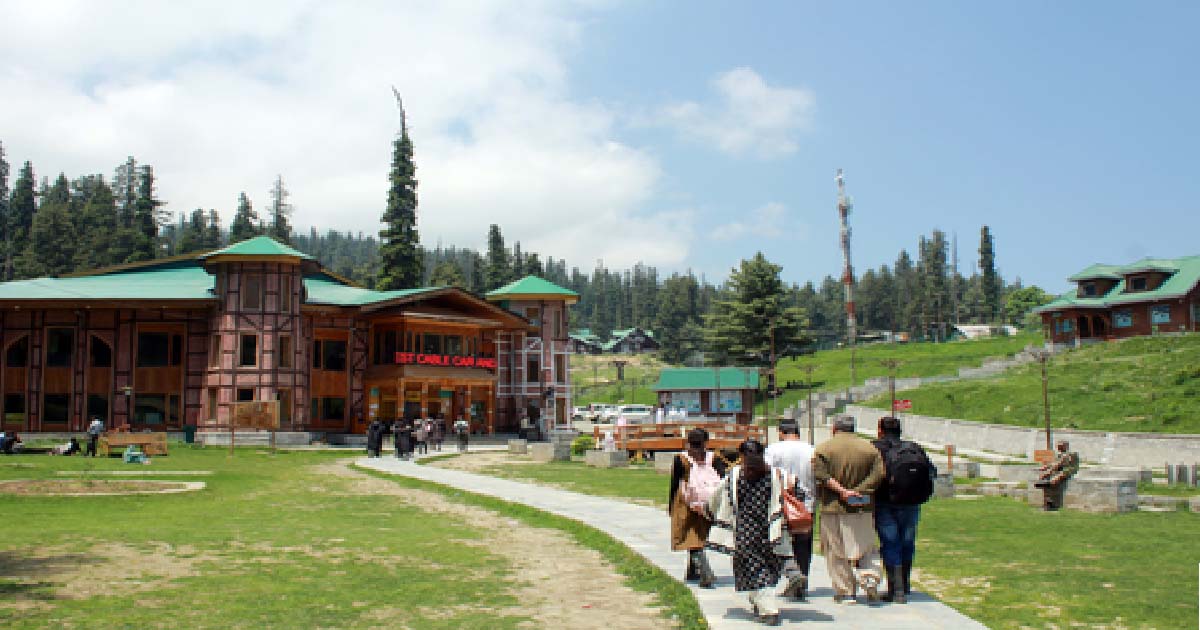National News
Canada High Commission Calls On Indian Govt To Ensure Safety & Security Of Diplomats, Staff Following Threats On Social Media

New Delhi: Amid growing tensions, the Canadian High Commission in New Delhi on Thursday called on the Indian government to ensure safety and security of diplomats and staff after they received threats on social media. The Canada High Commission in Delhi said, “Our High Commission and all consulates in India are open and operational and continue to serve clients. Global Affairs Canada continuously monitors the safety and security of our missions and personnel as we maintain a strict security protocol to respond to any events.”
Canada High Commission Statement
It said: “In light of the current environment where tensions have heightened, we are taking action to ensure the safety of our diplomats. With some diplomats having received threats on various social media platforms, Global Affairs Canada is assessing its staff complement in India. As a result, and out of an abundance of caution, we have decided to temporarily adjust staff presence in India. All of our locations are staffed by diplomats and locally-engaged staff to ensure business and operational continuity.” It said that Global Affairs Canada will continue to take all appropriate measures to protect the health and safety of all our personnel, including locally-engaged staff, and to protect our operations in India. “Decisions are made based on a number of factors including the professional profile of an employee or personal circumstances,” it said.
Obligations under the Vienna conventions
“In the context of respect for obligations under the Vienna conventions, we expect India to provide for the security of our accredited diplomats and consular officers in India, just as we are for theirs here,” the statement added.
The diplomatic tension between the two nations nosedived on Tuesday over the killing of Khalistani terrorist Hardeep Singh Nijjar.
New Delhi on Tuesday expelled a senior Canadian diplomat based here in a tit for tat move giving similar reply to Canada. The High Commissioner of Canada to India (Cameron Mackay) received summons on Tuesday during which the Government of India conveyed its decision to expel a senior Canadian diplomat currently stationed in the country. The concerned diplomat has been officially instructed to depart from India within the next five days, a statement issued by the MEA said.
“The decision reflects the Government of India’s growing concern at the interference of Canadian diplomats in our internal matters and their involvement in anti-India activities,” the statement said.
The decision came after Canada had earlier expelled a high ranking Indian diplomat. These developments have occurred after Canada Prime Minister Justin Trudeau on Monday in an emergency statement in Parliament accused the Government of India of involvement in the fatal shooting of Nijjar. India has rejected claims by the Canadian government that it had an involvement in the killing of Khalistani terrorist Hardeep Singh Nijjar. India has dubbed the charges as “absurd and motivated.”
National News
241 dead, one survivor as Air India Dreamliner crashes after takeoff from Ahmedabad: Air India

New Delhi, June 13: In what is being described as one of the worst aviation disasters in Indian history, an Air India Boeing 787-8 Dreamliner carrying 242 people crashed shortly after takeoff from Ahmedabad airport.
The aircraft, operating as Flight AI-171 from Ahmedabad to London Gatwick, plunged into a residential complex near BJ Medical College, killing 241 people on board.
The ill-fated flight had 230 passengers, 10 cabin crew, and two pilots. According to officials, only one person, a British national of Indian origin seated in 11A, survived the crash and is currently undergoing treatment at a local hospital.
The aircraft took off from Sardar Vallabhbhai Patel International Airport at 1.38 p.m. (IST) on Thursday before losing control moments later and crashing into a densely populated area, igniting a massive blaze and triggering emergency response teams across the city.
Air India confirmed the accident in an official statement on X: “UPDATE: Air India confirms that flight AI171, operating from Ahmedabad to London Gatwick on 12 June 2025, was involved in an accident. The 12-year-old Boeing 787-8 aircraft departed from Ahmedabad at 1338 hrs, carrying 230 passengers and 12 crew. The aircraft crashed shortly after take-off. We regret to inform that, of the 242 aboard, there are 241 confirmed fatalities. The sole survivor is being treated in a hospital.”
The airline also shared the nationality breakdown of passengers: 169 Indian nationals, 53 British, seven Portuguese, and one Canadian.
“Air India offers its deepest condolences to the families of the deceased. Our efforts now are focused entirely on the needs of all those affected, their families and loved ones. A team of caregivers from Air India is now in Ahmedabad to provide additional support,” the statement added.
The national carrier has pledged full cooperation with authorities investigating the cause of the crash and has established dedicated helplines for families seeking information.
Domestic callers can reach the support team at 1800 5691 444, while international callers are advised to dial +91 8062779200.
Regular updates will be provided through Air India’s official website and its X handle.
National News
Plastic nurdle spill from sunken cargo ship reaches TN’s Dhanushkodi sanctuary, raising alarm

Chennai, June 10: A plastic nurdle spill from the sunken cargo ship MSC ELSA 3 has spread into the newly declared Dhanushkodi Greater Flamingo Sanctuary in Ramanathapuram district, threatening one of India’s most fragile coastal ecosystems.
The MSC ELSA 3, a Liberian-flagged vessel, sank off the Kochi coast a few weeks ago while carrying 640 containers, including 13 with hazardous materials, 12 with calcium carbide, 367 tonnes of furnace oil, and 84 tonnes of diesel.
The ship’s cargo manifest remains undisclosed, fuelling speculation about the full extent of environmental risk.
Dhanushkodi Sanctuary, located within the Gulf of Mannar Biosphere Reserve, supports 128 species of birds — including Greater and Lesser Flamingos — and is home to sea turtles, crustaceans, molluscs, and fish. Its dunes, marshes, and seagrass beds form part of the Central Asian Flyway for migratory birds.
The nurdles — tiny plastic pellets used in industrial manufacturing — resemble fish eggs and can be deadly to marine life. When ingested, they cause internal blockages, starvation, and often death. They also absorb toxins, entering the food chain and posing long-term health hazards.
About 80 bags, each weighing 25 kilograms, have reportedly washed ashore along a 12-km coastal stretch. Affected sites include the Dhanushkodi old church, Irattaithalai, Mugandharayan Chathiram, Gothanda Ramar temple, and Patchappatti village.
Carried by ocean currents from the Thiruvananthapuram-Kanniyakumari coast, the spill now threatens the adjacent Gulf of Mannar Marine National Park, home to vital coral reefs and seagrass beds.
Experts warn these habitats could be smothered by plastic debris, blocking sunlight and disrupting photosynthesis.
Ramanathapuram District Collector Simranjeet Singh Kahlon said, “We’ve identified between 15 and 30 nurdle bags along the coast. A special team has been deployed for cleanup, and additional teams are monitoring for further debris.”
He urged the public not to panic, stating that swift action was underway.
The disaster evokes memories of the 2021 X-Press Pearl incident in Sri Lanka, where 1,680 tonnes of nurdles led to mass marine deaths and crippled fisheries.
Studies showed severe impacts on plankton and larval life forms, threatening entire food chains.
Cleanup efforts in Ramanathapuram face challenges due to the nurdles’ buoyancy and small size, worsened by monsoon waves that break them into microplastics.
With the 61-day annual fishing ban nearing its end, fishermen fear reduced fish catches and consumer hesitancy could harm their livelihoods if the spill worsens.
Environmentalists are calling for urgent intervention, cargo transparency, and long-term containment measures to prevent irreversible damage to one of India’s most critical marine ecosystems.
National News
Eight Punjab and Haryana HC judges take lead to boost Kashmir tourism post Pahalgam terror attack

Srinagar, June 9: To give a boost to Kashmir tourism post Pahalgam terror attack, eight judges of the Punjab and Haryana High Court are visiting the valley along with their families.
The visit of the legal personalities along with their families carries a powerful message for the revival of tourism in Kashmir, which got shattered after the Pahalgam terror attack.
On April 22, Pakistan-backed terrorists of Lashkar-e-Kashmir (LeT) killed 26 civilians, including 25 tourists and a local pony owner.
The pony owner sacrificed his life while trying to protect the tourists from the bullets of the terrorists.
The terror attack caused outrage in the entire country, and to avenge the killings of innocent civilians, the Indian Armed Forces carried out airstrikes against terror infrastructure in Pakistan under Operation Sindoor.
In retaliation for India’s attack on terrorist infrastructure, Pakistan resorted to heavy mortar shelling on civilian facilities in Poonch, Rajouri, Baramulla, Kupwara and Bandipora districts.
Eighteen civilians were killed in Pakistan shelling, 13 of them in Poonch district, in addition to the destruction of scores of homes, shops, a temple, a mosque, a church and a Gurudwara.
The itinerary of the visiting high court judges includes visits to the Mughal Gardens of Nishat and Shalimar, Shikara rides on the Dal Lake, a visit to the historic Pari Mahal and buying a few handicrafts at the local market.
There could be no better omen for the revival of tourism in Kashmir than the decision of the honourable justices of the High Court to come here along with their families.
Coinciding with the visit of these dignitaries, local tour and travel operators and hotel owners are reporting a gradual rise in the tourist bookings that had virtually stopped after the Pahalgam terror attack.
Tour and travel operators and others connected with the tourist industry have expressed hope that the visit by the most respected legal dignitaries, like the high court judges, will restore confidence among visitors, both domestic and foreign, that Kashmir is a safe tourist destination.
-

 Crime3 years ago
Crime3 years agoClass 10 student jumps to death in Jaipur
-

 Maharashtra9 months ago
Maharashtra9 months agoMumbai Local Train Update: Central Railway’s New Timetable Comes Into Effect; Check Full List Of Revised Timings & Stations
-

 Maharashtra9 months ago
Maharashtra9 months agoMumbai To Go Toll-Free Tonight! Maharashtra Govt Announces Complete Toll Waiver For Light Motor Vehicles At All 5 Entry Points Of City
-

 Maharashtra9 months ago
Maharashtra9 months agoFalse photo of Imtiaz Jaleel’s rally, exposing the fooling conspiracy
-

 Crime9 months ago
Crime9 months agoBaba Siddique Murder: Mumbai Police Unable To Get Lawrence Bishnoi Custody Due To Home Ministry Order, Says Report
-

 National News9 months ago
National News9 months agoMinistry of Railways rolls out Special Drive 4.0 with focus on digitisation, cleanliness, inclusiveness and grievance redressal
-

 Maharashtra8 months ago
Maharashtra8 months agoMaharashtra Elections 2024: Mumbai Metro & BEST Services Extended Till Midnight On Voting Day
-

 National News9 months ago
National News9 months agoJ&K: 4 Jawans Killed, 28 Injured After Bus Carrying BSF Personnel For Poll Duty Falls Into Gorge In Budgam; Terrifying Visuals Surface












